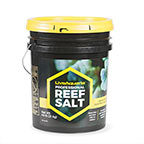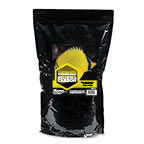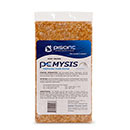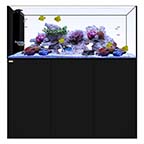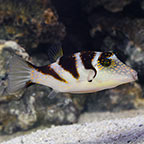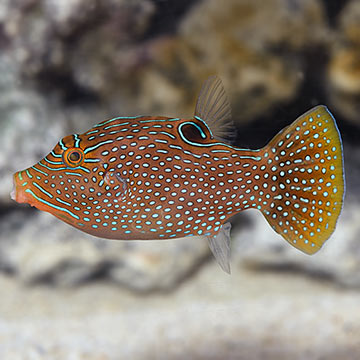
 SAVE up to 50%!
SAVE up to 50%!Additional locales and sizes may be available!
Additional locales and sizes may be available! Email me when availableQuick Stats
What do these Quick Stats mean? Click here for more information
What do these Quick Stats mean? Click here for more information
Overview
A 50 gallon or larger, fish-only aquarium is suitable. Its teeth are actually a fused beak-like structure. It may eat invertebrates found in a reef tank. It becomes alarmed when in a net, therefore, use a container to transfer it.
The diet of the Blue Spotted Puffer needs a varied diet of meaty foods including; squid, krill, clams, and hard shelled shrimp to help wear down their ever growing teeth.
Approximate Purchase Size: Small: 1" to 2"; Medium: 2" to 3"; Large: 3" to 4"



